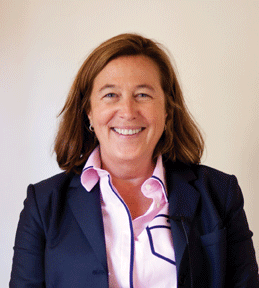Cardiologist Calls For Real-Time Access To Personal Health Metrics
This article was originally published in The Pink Sheet Daily
Executive Summary
University of Southern California cardiology chief Leslie Saxon calls access to personal digital health care data a civil right.
Leslie Saxon, chief of the division of cardiovascular medicine at the University of Southern California’s Keck School of Medicine, says technological advances make it possible for patients to be involved with their own health care on a daily basis.
Speaking April 13 at the TEDMED 2012 conference in Washington, D.C., touted as a gathering of visionaries discussing the future of health and medicine, Saxon told fellow physicians it was their job to help patients edit the unique health stories they are living.
“As physicians, it’s really our signature challenge to do that editing more accurately and efficiently as digital health scales globally.”

Leslie Saxon is founder and executive director of the Center for Body Computing at the University of Southern California.
Photo: University of Southern California
Saxon, also founder of the Center for Body Computing, an innovation center at USC in Los Angeles, said her goal is to help create a global digital health platform.
“We want to use the five billion cell phones in the world to collect the heartbeat of every person around the world” through the use of manufacturer-agnostic sensors. She envisions the “digital dialogue” that would follow as creating a revolution in medical care.
“Imagine getting a call from your doctor who may be somewhere else in the world that you're about to get sick ... versus you having to proactively reach out. Truly a different paradigm.”
In the mid-1990s, Saxon was helping to design sophisticated cardiac devices at the University of California, San Francisco, she said, while at the same time down the road in Silicon Valley, a digital revolution was taking place outside medicine. “My world was changing because of the information age, but the way I practiced medicine wasn’t changing at all.”
“Patients' being able to continuously interact with their data and with their providers [is] one of the more important civil rights issues of our era” – cardiologist Leslie Saxon
It would be several years before the medical device makers were invited to join investors and technologists in Silicon Valley to discuss the “unbelievable potential in bringing the information age to health care to scale across hundreds of millions of patients,” she said.
According to Saxon, research shows that patients with implantable devices who view and transmit their medical data to doctors on a daily basis live longer than those who have the same devices but do not see and transmit the data.
“You’re suddenly changing this centuries-old paradigm,” Saxon said. "It’s no longer paternalistic in the same way. You’re learning from each other, and you don’t have to wait months to intervene.” That is especially important with patients at risk for stroke, for example.
Saxon said there has been push-back from some in the medical community who don’t believe patients can handle such data unless it is filtered by a doctor first, even though many physicians are inaccessible much of the time.
“I’ve come to view this – patients' being able to continuously interact with their data and with their providers – as one of the more important civil rights issues of our era,” Saxon said.
She encouraged physicians to “truly enfranchise patients, daily, in their care.” But she also admitted that “the pull is going to have to come from the public, the consumer of health care, which is the patient.”
[Editor’s note: This story was contributed by “The Gray Sheet,”![]() your source for in-depth coverage of the medical device and diagnostics industry. For more information call 1-800-332-2181. To register for a free trial, click here/
your source for in-depth coverage of the medical device and diagnostics industry. For more information call 1-800-332-2181. To register for a free trial, click here/![]() – no credit card needed.]
– no credit card needed.]